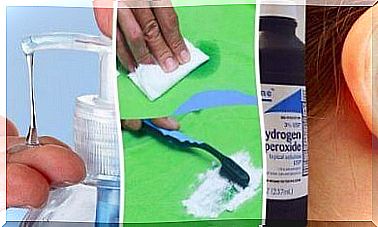Amnesia And Forgetfulness

Symptoms of occasional memory loss and forgetfulness are normal, especially as you get older, even if it causes anxiety in the people who experience it. In most cases, there is nothing to worry about as these symptoms are often either completely manageable and even reversible.
Many of us have wondered what is and isn’t normal when it comes to memory loss and forgetfulness. This is not easy to diagnose because we often forget things and it is not necessarily due to a problem such as Alzheimer’s disease. Usually it is due to excessive stress or other temporary factors.
Of course, there are times when memory loss can indicate the onset of cognitive decline that may or may not precede Alzheimer’s disease. To clear up any doubts, it is important to stay informed about this topic and consult your doctor. In this article, we will look at this issue in more detail.
Memory loss and forgetfulness

From the age of 20, we all start to lose brain cells. This loss increases as we age. In the same way, our body gradually reduces the formation of various chemicals necessary for the proper functioning of neurons.
All of this changes the way the brain stores memory information. And as we get older, memory losses become more common and the ability to learn new things declines. However, this is not a sign of a serious health problem.
These memory changes often relate to specific problems that are usually of little concern. For example, you forget where your glasses are or what you have planned for tomorrow.
However, this type of memory loss typically occurs in older people and it does not affect the ability to work, have a social life, and live independently.
Reversible amnesia
Sometimes memory loss is related to more serious health problems, but they are treatable and reversible. Some factors lead to frequent memory problems, but are not related to permanent memory loss. Some of these factors include:
- Brain diseases, such as a tumor or infection.
- Thyroid problems.
- Head injury.
- High fever or dehydration.
- Alcohol use or consequences of alcoholism.
- Response to a drug.
- Vitamin B12 deficiency.
- Malnutrition.
In all these cases, it is best to go to the doctor so that they can determine the best treatment. In addition, it is common for memory loss to be due to an emotional state of stress, sadness, anxiety, and other emotional problems. In that case, a psychotherapist can really help.
Irreversible amnesia and forgetfulness

Alzheimer’s disease is a progressive neurodegenerative disease that manifests itself in several stages. Difficulty remembering can also be a sign of mild cognitive impairment, Alzheimer’s disease, or other forms of dementia.
People with mild cognitive amnesia have more memory problems than normal. However, these are not too serious and rarely prevent them from living an independent life.
This type of deterioration is suspected when important events are often forgotten. So, for example, it can be difficult to find the right words when expressing yourself. Only a doctor can diagnose this problem.
In the most severe cases , memory loss can be due to Alzheimer’s disease or vascular dementia. Symptoms of this type of dementia include:
- General problems remembering things.
- Asking the same question over and over or telling the same story over and over.
- Getting lost in familiar places or normal circumstances that should be easily remembered.
- Disorientation of time and space.
- Problems dealing with money and bank accounts.
- V erhoogde anxiety or aggressiveness.
Other information to consider
Anyone concerned about the functioning of their memory should see a doctor. Only doctors can identify the possible causes and, if necessary, diagnose the underlying health problem as early as possible. This is because early diagnosis significantly improves the prognosis.
Memory exercises and learning new things are the best way to prevent memory loss. In addition, regular exercise is an excellent way to maintain brain health.
There is still no cure for Alzheimer’s disease at this time, but there are many treatments to halt its progress. The good news, however, is that several ongoing studies suggest that the cure for this disease could be available within 10 years.









